Relaterede emner
- How to Update BIOS with ASUS Firmware Update/EZ Flash
- How to Boot from a USB Flash Drive/CD-ROM (Changing Boot Options)
- [Motherboard/Desktop] ASUS EZ Flash 3 - Introduction
- [Motherboard/Desktop] How to restore BIOS setting?
- [Notebook/AIO] Troubleshooting - Computer occurs black screen when the BIOS update process is interrupted
- How to update BIOS in Windows
- How to Restore BIOS Settings
[Windows 11/10] How to Enter the BIOS Configuration Screen
Applicable Products: Notebook, Desktop, All-in-One PC, Gaming Handheld, MiniPC
This article elucidates two distinct approaches for accessing the BIOS configuration interface, allowing you to opt for the most appropriate procedure tailored to your requirements:
Method 1: Entering BIOS Configuration within the Windows Desktop Environment
Note: Should your device be incapable of initiating the Windows operating system, please consult Method 2: Accessing BIOS Configuration Before Booting the Operating System.
Note: For those utilizing a 2-in-1 laptop (convertible, such as the Transformer Book), ensure the keyboard is connected prior to executing the following steps.
Please go to the corresponding instruction based on the current Windows operating system on your device:
Windows 11 operating system
To provide you more detailed instruction, you can also click ASUS YouTube video link below to know more about How to enter the BIOS configuration:
Https://www.youtube.com/watch?v=11wlU-p0jmk
- Type and search [Change advanced startup options] in the Windows search bar①, then click [Open]②.
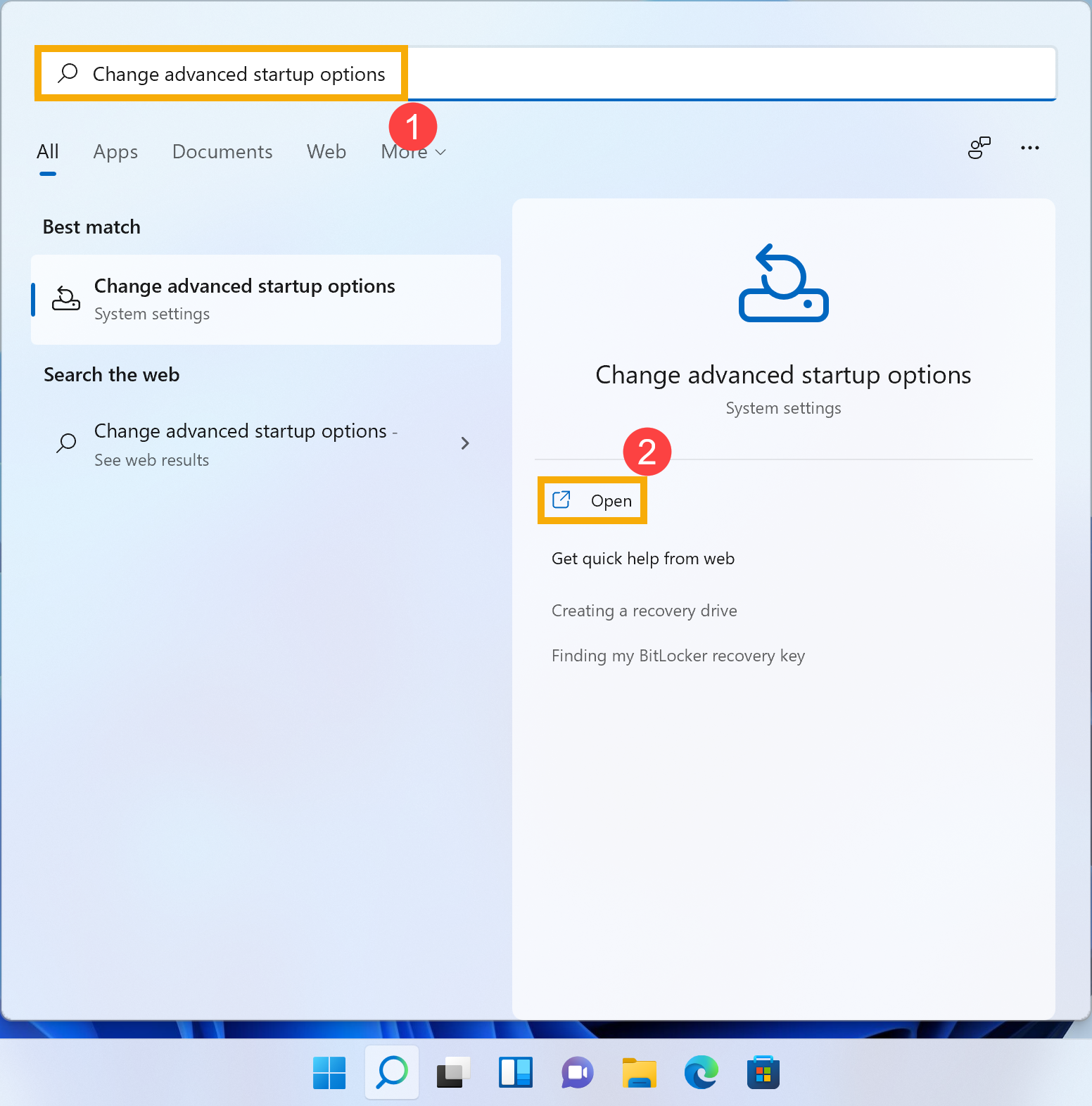
- In the Advanced startup filed, click [Restart now]③.
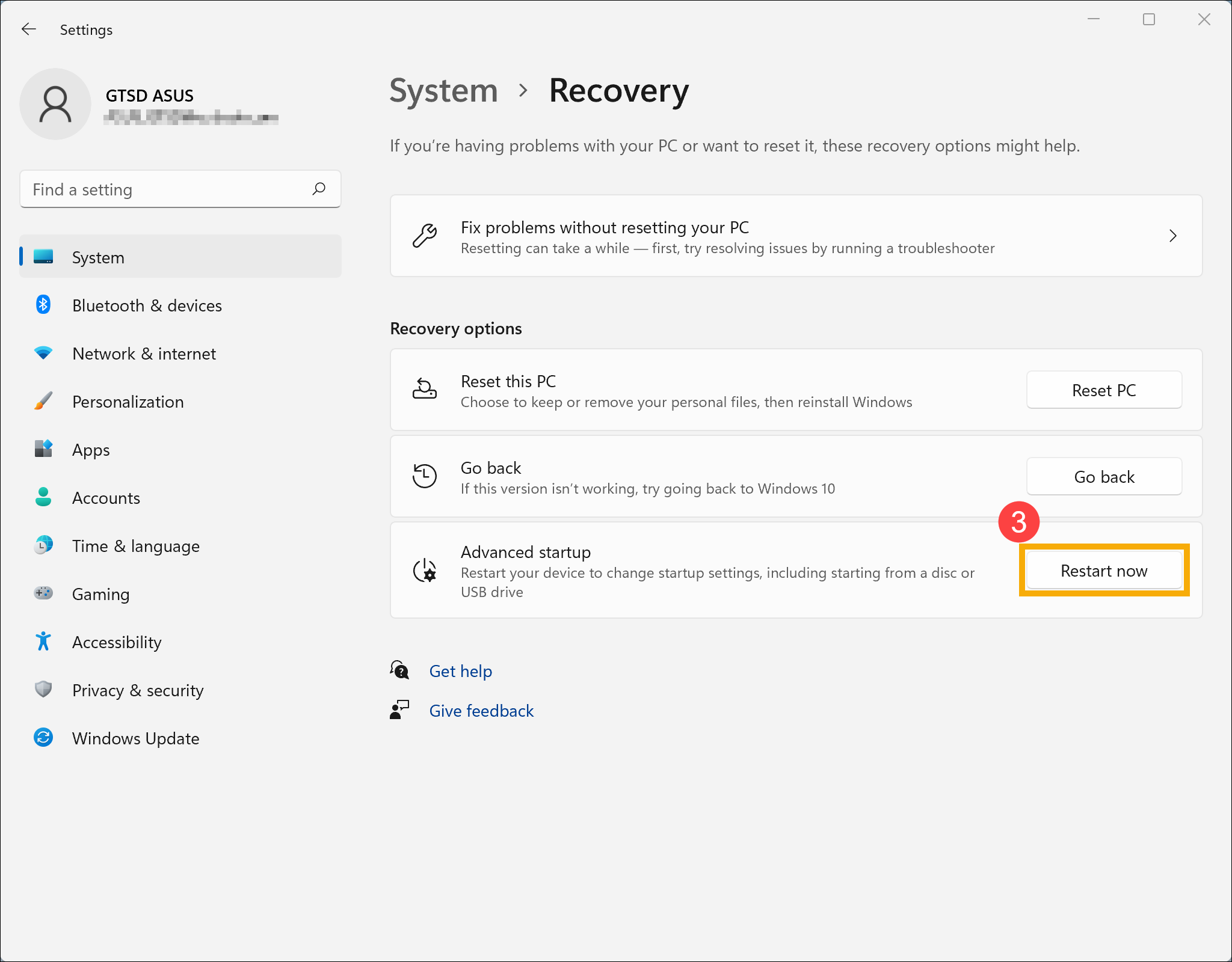
- Windows will restart your device, please be sure to save your work, and then select [Restart now]④.
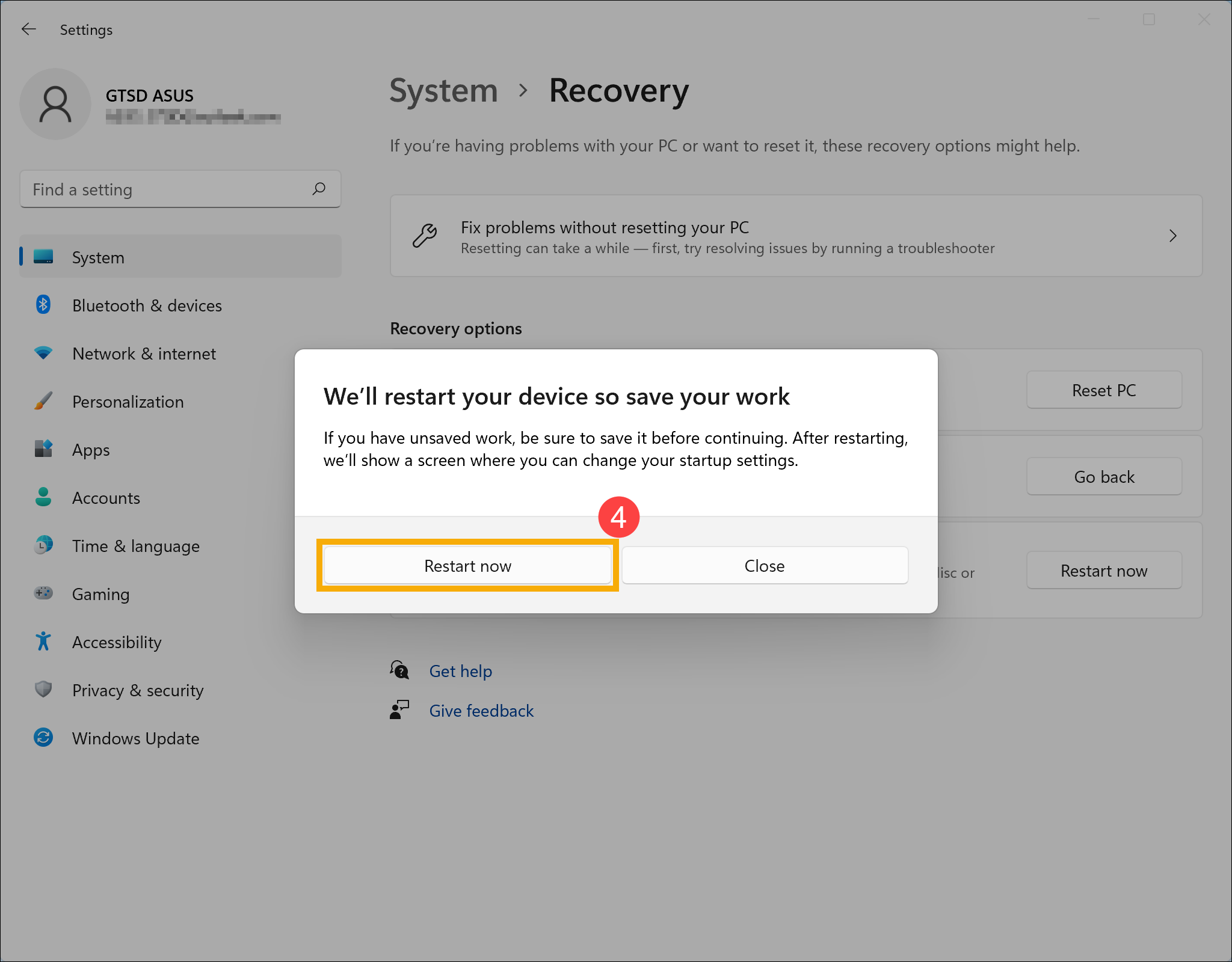
- Upon reboot, when the following screen appears, select [Troubleshoot]⑤.
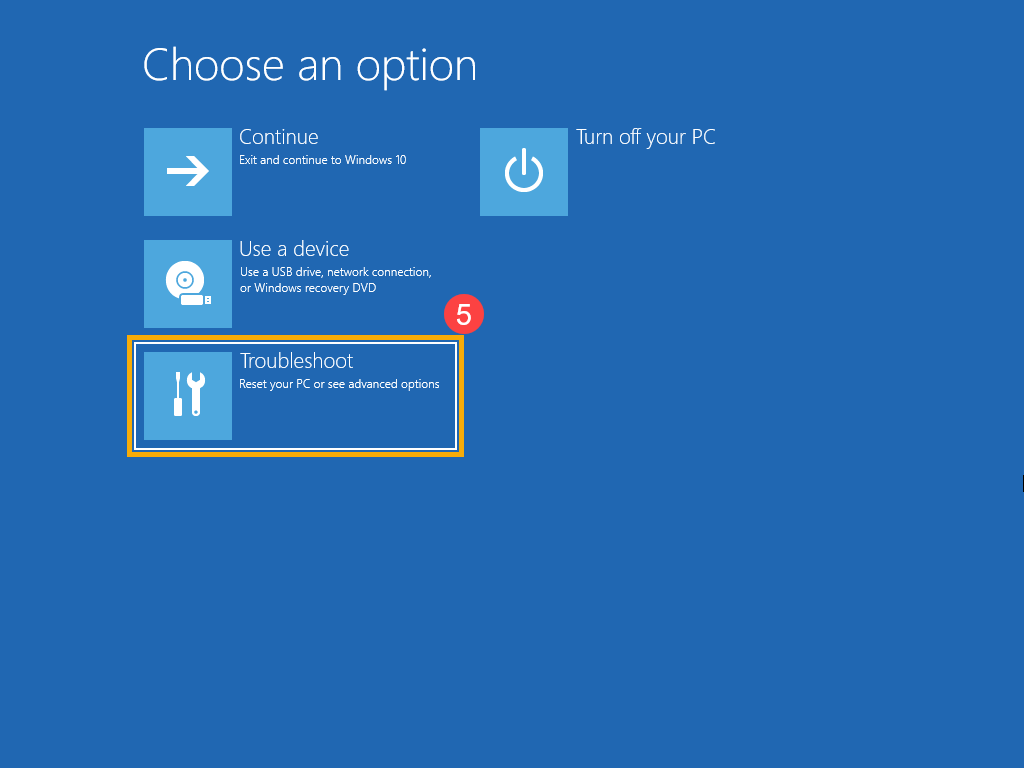
- Select [Advanced options]⑥.
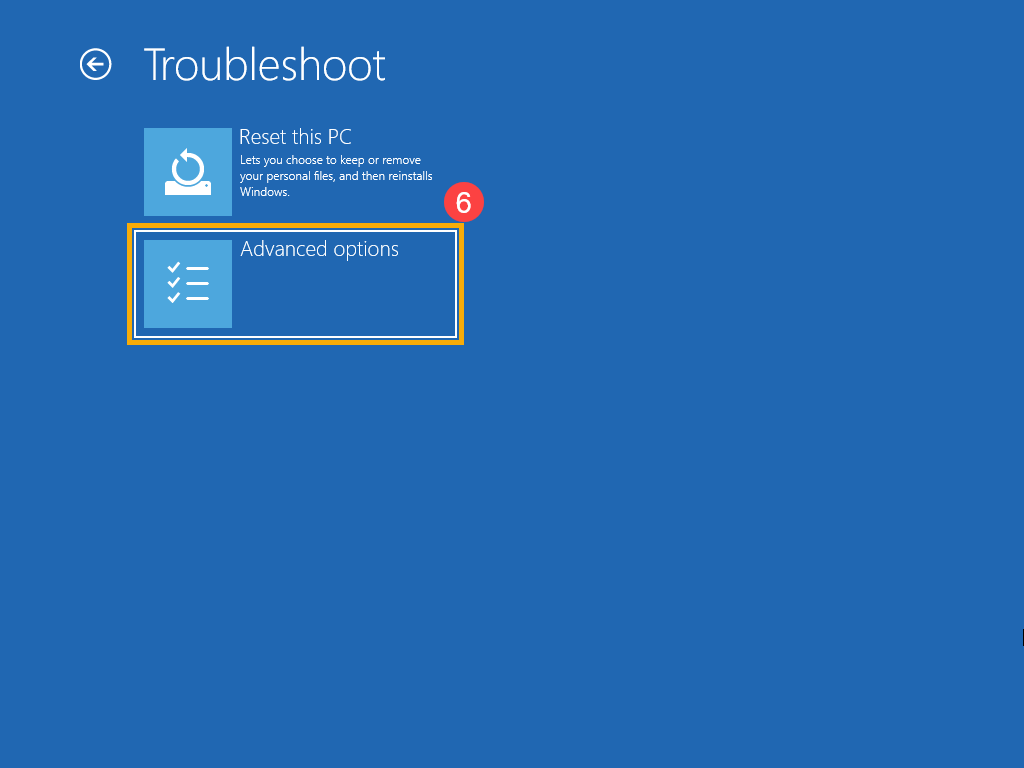
- Select [UEFI Firmware Settings]⑦.
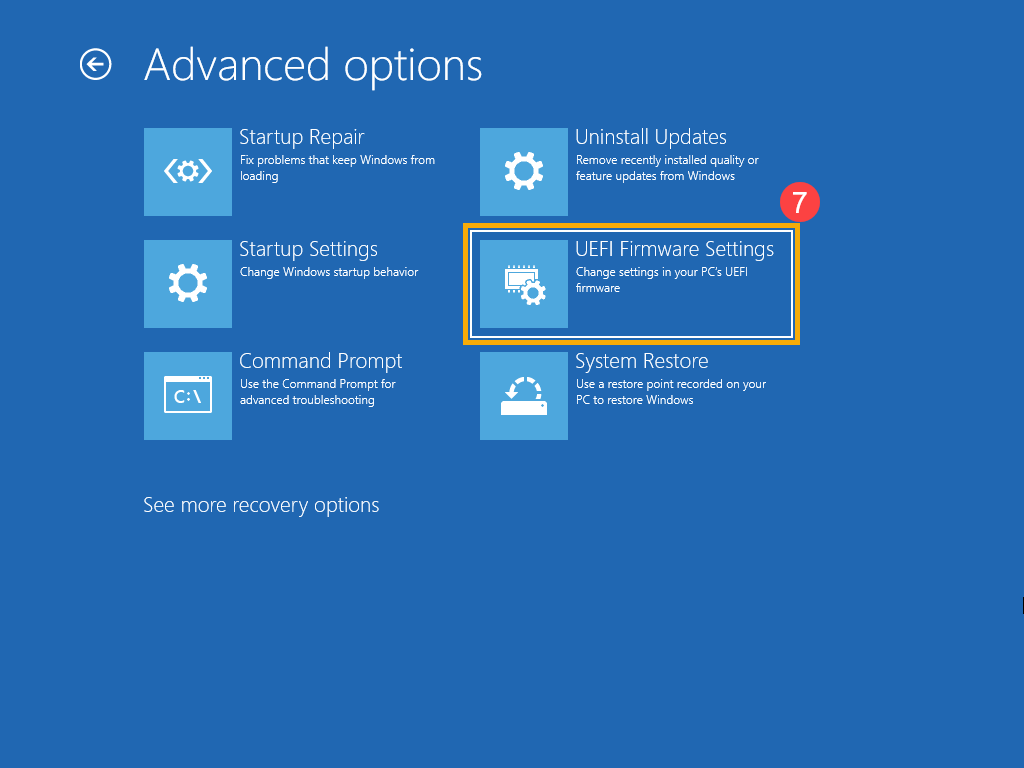
- Click [Restart]⑧, your device will enter the BIOS configuration after the restart.
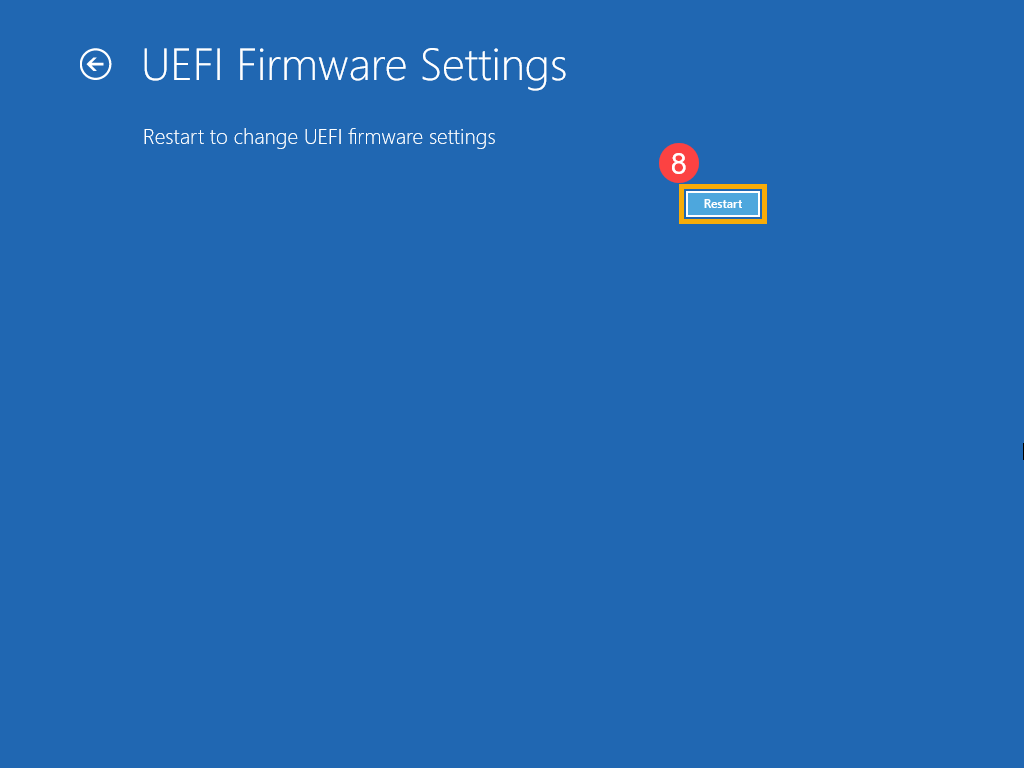
- Upon entering the BIOS configuration screen, you will encounter three types of interfaces: UEFI interface, Legacy interface, and MyASUS in UEFI.
Note: The BIOS configuration interface may vary slightly depending on the model.
UEFI interface
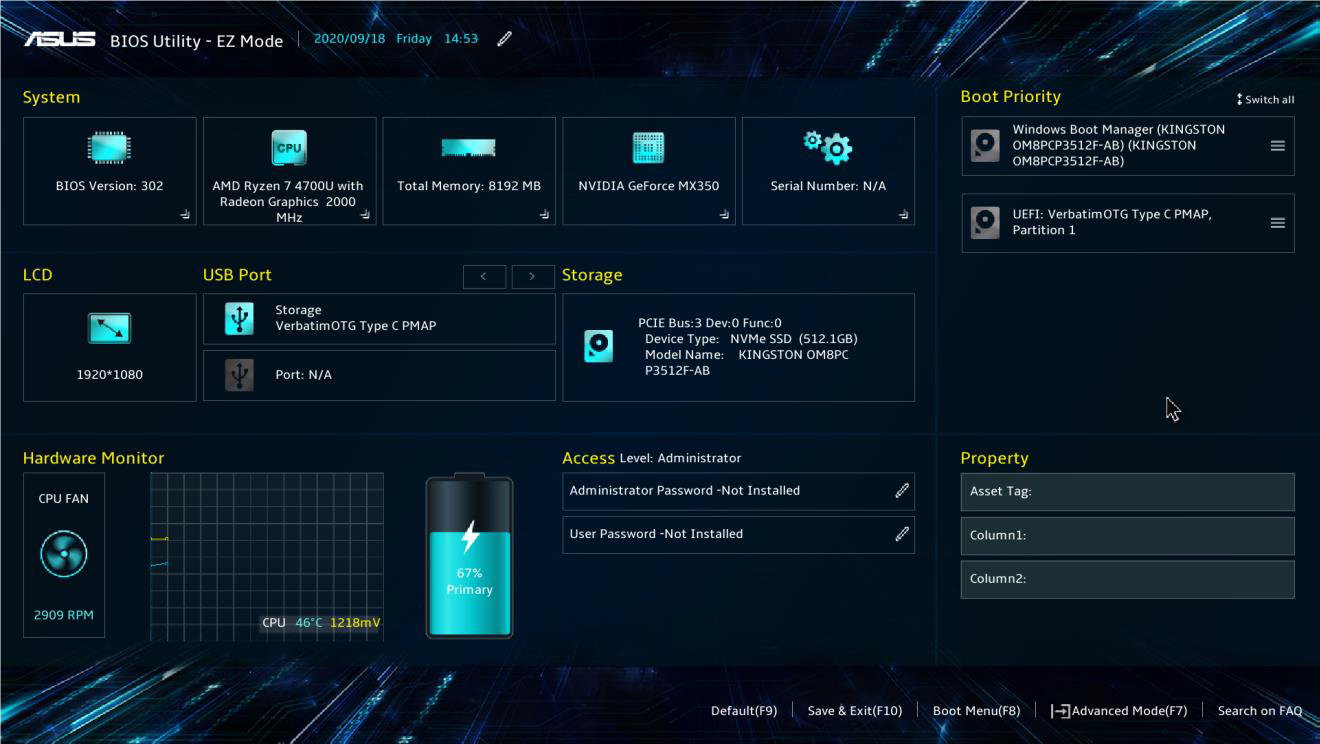
Legacy interface
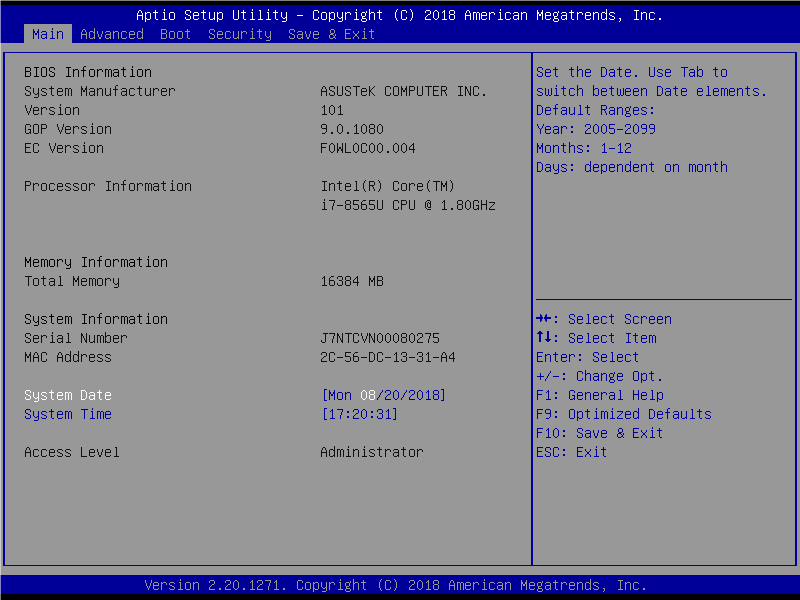
MyASUS in UEFI
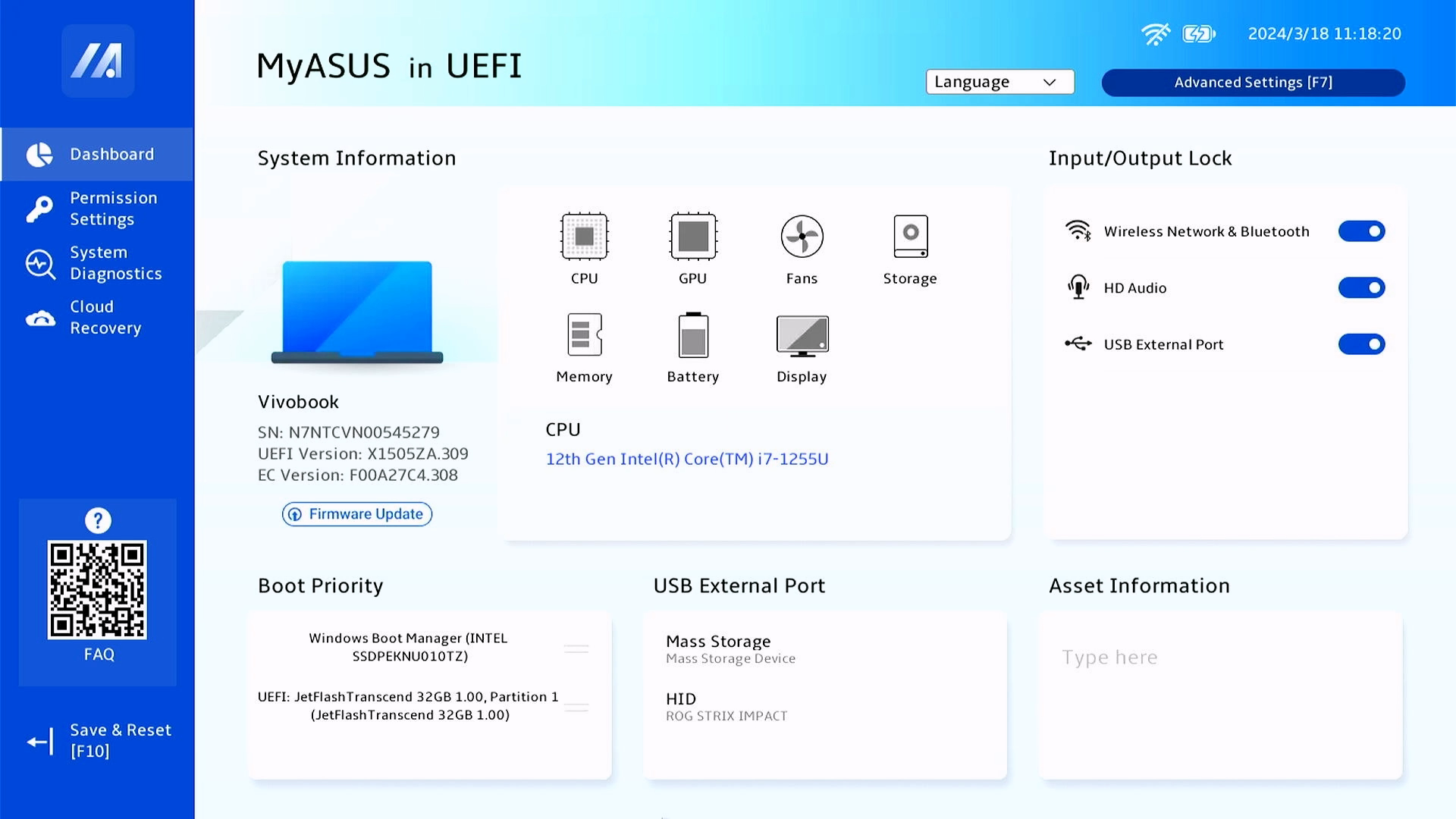
Windows 10 operating system
To provide you more detailed instruction, you can also click ASUS YouTube video link below to know more about How to enter the BIOS configuration:
Https://www.youtube.com/watch?v=HQXFd0CN4s8
- Type and search [Change advanced startup options] in the Windows search bar①, then click [Open]②.
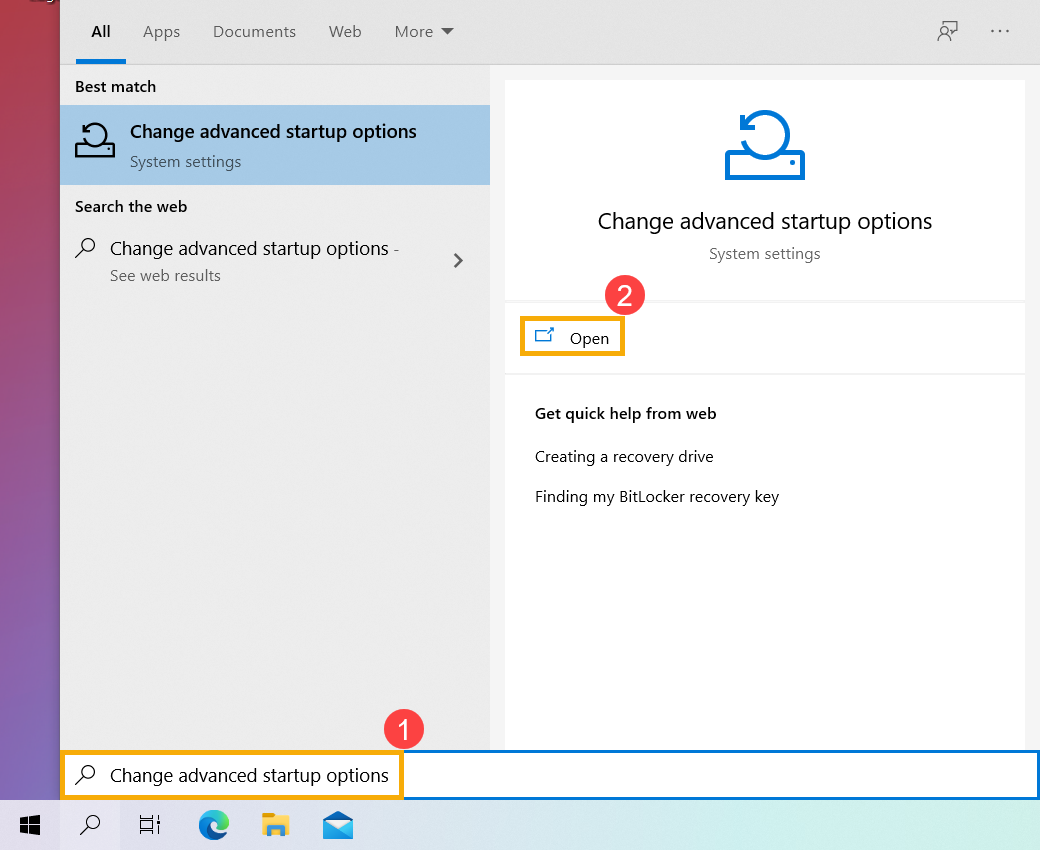
- In the Advanced startup filed, click [Restart now]③. Windows will restart your device, if you have unsaved work, please be sure to save it before continuing.
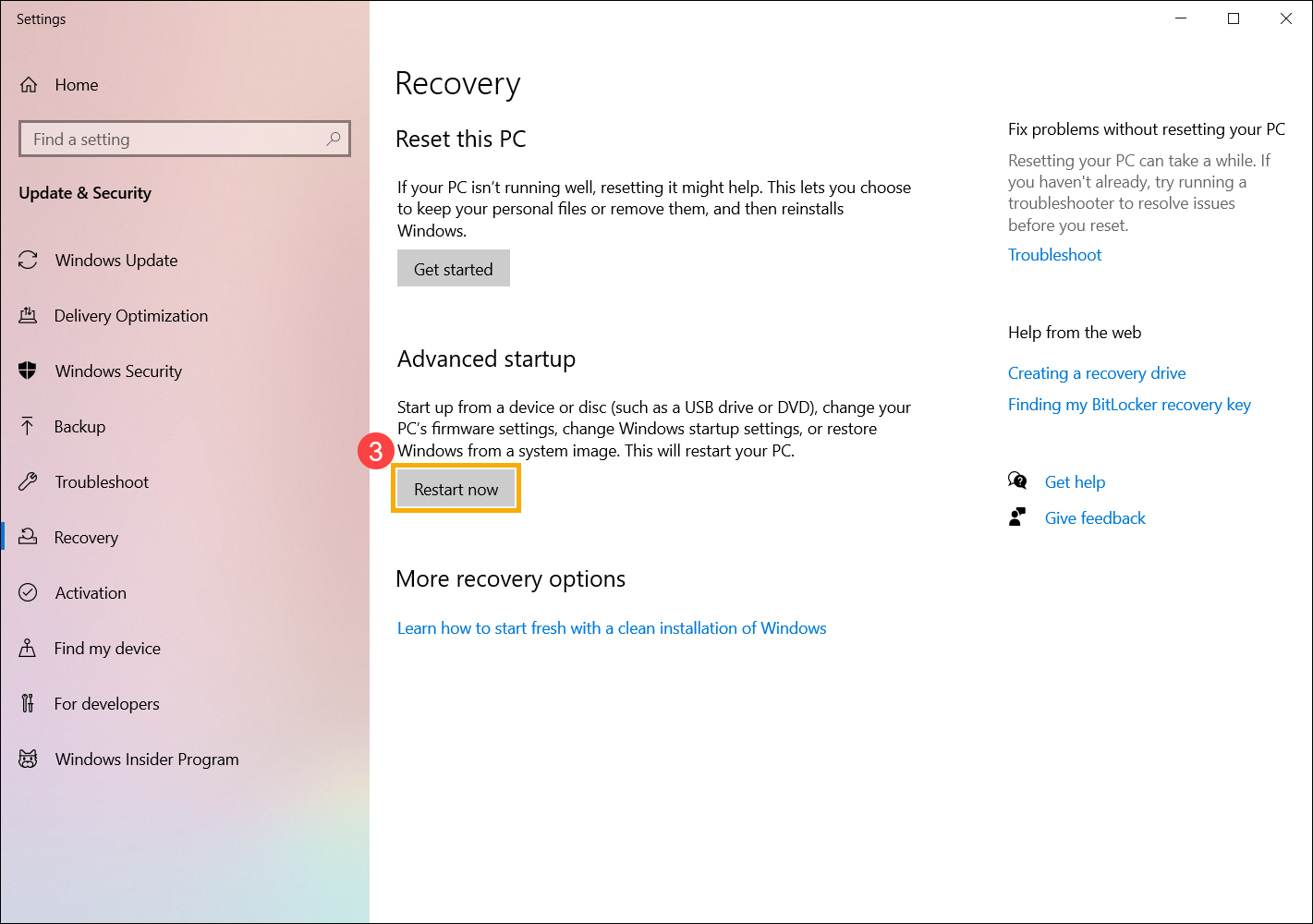
- Upon reboot, when the following screen appears, select [Troubleshoot]④.
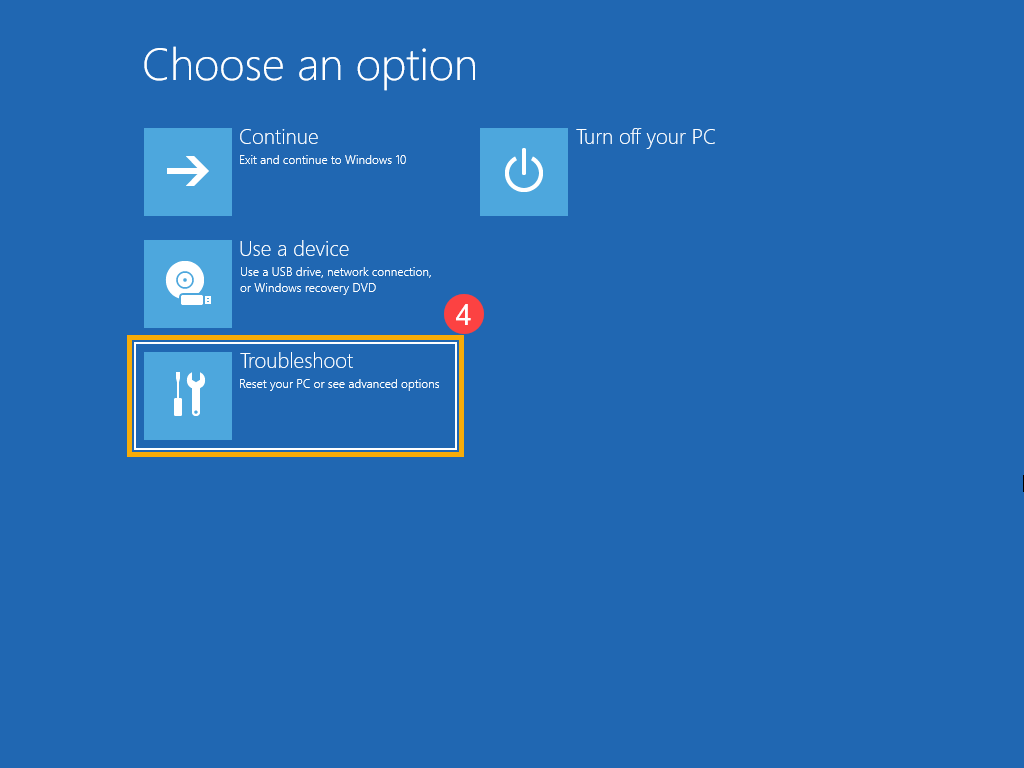
- Select [Advanced options]⑤.
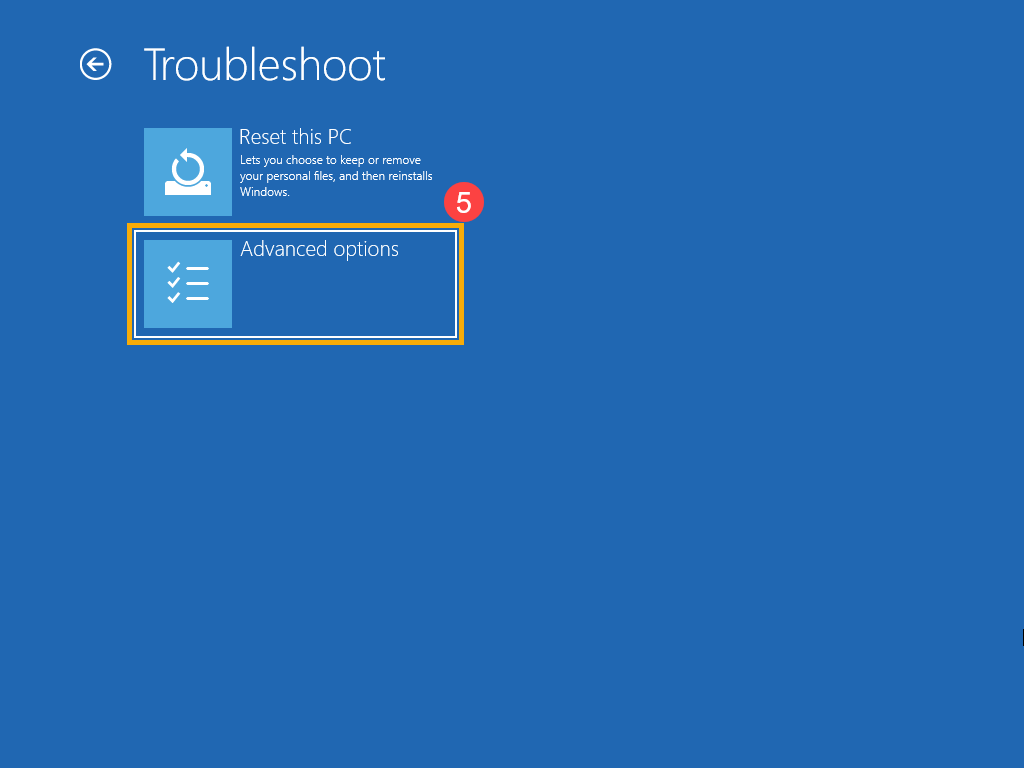
- Select [UEFI Firmware Settings]⑥.
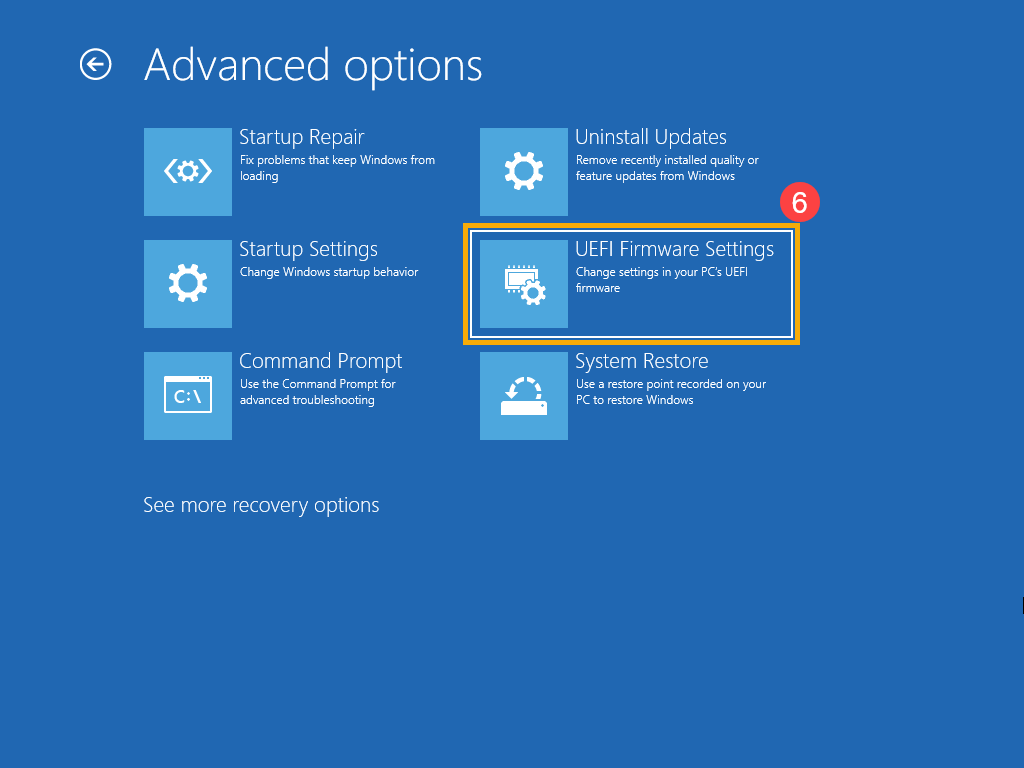
- Click [Restart]⑦, your device will enter the BIOS configuration after the restart.
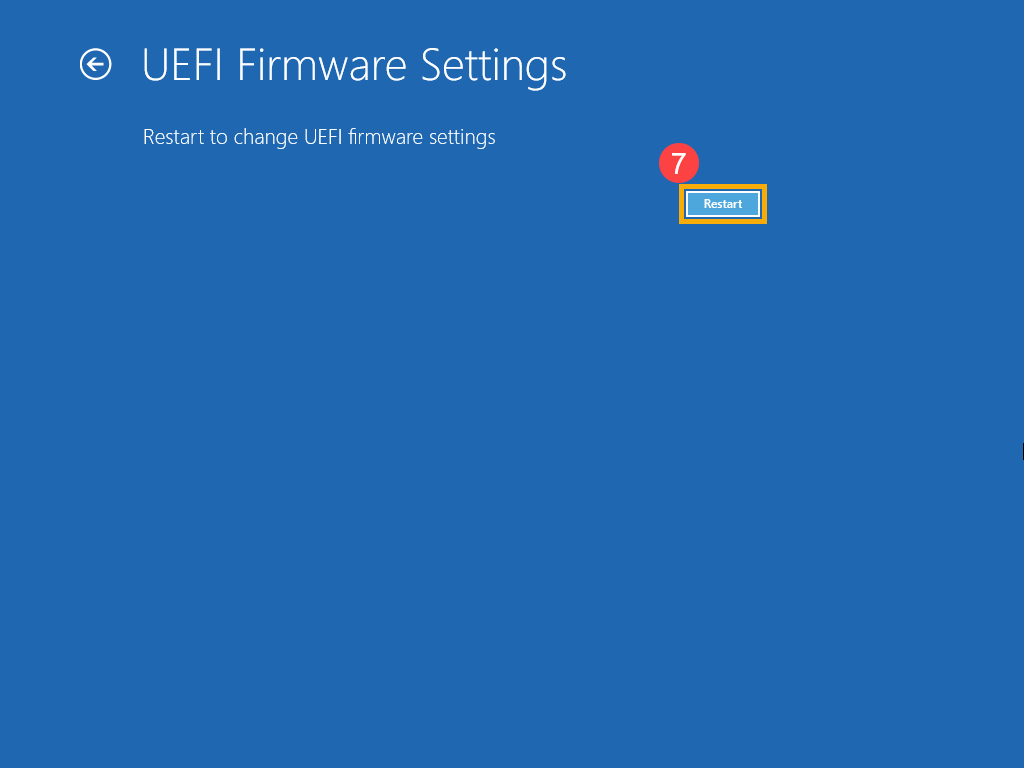
- Upon entering the BIOS configuration screen, you will encounter three types of interfaces: UEFI interface, Legacy interface, and MyASUS in UEFI.
Note: The BIOS configuration interface may vary slightly depending on the model.
UEFI interface

Legacy interface

MyASUS in UEFI

Method 2: Accessing BIOS Configuration Before Booting the Operating System
To provide you more detailed instruction, you can also click ASUS YouTube video link below to know more about How to enter the BIOS configuration:
Https://www.youtube.com/watch?v=NbnPWhI4xis
- When the device is completely shut down, persistently hold the [F2] key
 on the keyboard and simultaneously press the [Power button]
on the keyboard and simultaneously press the [Power button] to boot up. Once the BIOS configuration screen appears, you may release the [F2] key. You may consult this video for a visual guide on How to enter the BIOS configuration.
to boot up. Once the BIOS configuration screen appears, you may release the [F2] key. You may consult this video for a visual guide on How to enter the BIOS configuration.
Note: For some older desktop models, you may need to press and hold the [Del] key during startup to access the BIOS configuration screen.
during startup to access the BIOS configuration screen.
Note: For gaming handhelds, press and hold the [Volume Down] button and then press the power button. - Upon entering the BIOS configuration screen, you will encounter three types of interfaces: UEFI interface, Legacy interface, and MyASUS in UEFI.
Note: The BIOS configuration interface may vary slightly depending on the model.
UEFI interface

Legacy interface

MyASUS in UEFI
